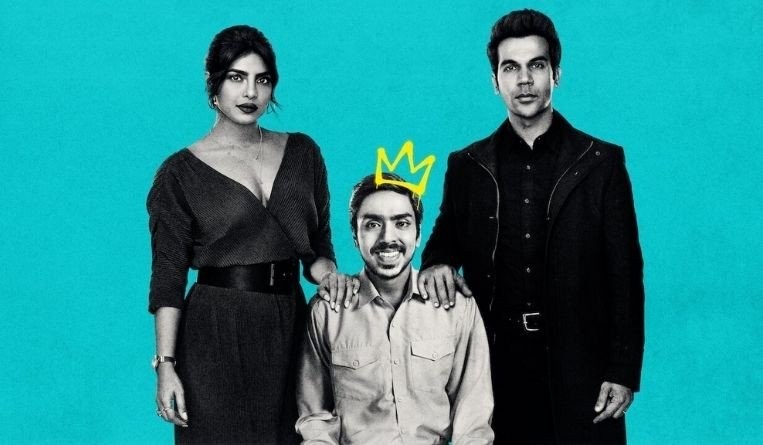“The White Tiger”: ‘Catfight’ over copyright
24 February 2021
 Image credits: Netflix
Image credits: Netflix
On February 11, 2021, Sonia Mudbhatkal who runs a production company in the United States and her lawyer did not appear in a court hearing for the copyright infringement lawsuit she filed involving the Netflix original film “The White Tiger.”
Mudbhatkal and Hollywood filmmaker John Hart Jr. filed a petition before the Delhi High Court, seeking a stay on the movie’s Netflix release due to copyright violation.
The two claim they have the adaptation rights to the Aravind Adiga novel of the same title. The Netflix original film, starring Priyanka Chopra, Rajkummar Rao and Adarsh Gourav, is based on the novel. A literary auction agreement between Hart and Adiga was executed in March 2009, according to Advocate Kapil Sankhla who represents the Hollywood filmmaker and Mudbhatkal.
The petition was filed mere hours before the film’s scheduled start of streaming on January 21, 2021. The Defendants are “The White Tiger” producer Mukul Deora, his accountant Sharad Sekasari and Netflix.

However, Justice C. Hari Shankar pronounced there was no prima facie material on record to justify granting of interim injunction 24 hours before the start of the movie’s streaming.
“It should be pointed out that the dismissal of the injunction application was only based on preliminary findings and was not on the merits of copyright infringement,” said Nikhil Srivastava, a senior associate at Selvam & Selvam in Tamil Nadu.
However, had the Plaintiffs gone to court earlier, they would have built a stronger case.
“If they had an exclusive agreement with the author/copyright holder, they would have a proper basis to assert their rights. However, it is clear from the order that the judge was not convinced with the material placed on record and felt these were inadequate for him to stop a movie release in the last minute,” said Vishnumohan Rethinam, a partner at Remfry & Sagar.
“If they indeed had exclusive rights, then yes, going earlier to court would’ve allowed them to place material which they asserted they had and which the judge wanted,” he added.
Srivastava agrees.
“The Plaintiffs themselves have stated that they were first made aware of the Netflix film being produced in October 2019, but the injunction application was filed with the Delhi High Court only in 2021. While certainly some allowances have to be made for the fact that 2020 was a completely unprecedented year, the Indian courts have been functioning through video conference through the pandemic,” explained Srivastava. “I would think that had the Plaintiffs chosen to approach the courts soon after being made aware of the Netflix film being produced, they would have had a better chance of obtaining an injunction against the movie’s release.”

“I am not aware of the specifics of the contracts executed between the various stakeholders,” Srivastava added. “However, I will point out that one of the submissions in court was that an agreement regarding the further assignment of the rights to ‘film the novel’ from some of the Plaintiff’s subsidiary companies to one of the subsidiary companies of the Defendants was executed in 2014. Another argument was that there was already a dispute between the parties in 2014 itself, and a sum of INR 5.3 million (US$ 75,000) had been paid to one of the Plaintiffs in exchange for waiving all copyright claims at the time. While these claims have not been examined on their merits or in detail, it is quite likely that the specifics of these various contracts will be studied at length during the trial proceedings.”
A second hearing was scheduled, on February 11 when Mudbhatkal and her lawyer failed to appear.
The Defendants were also instructed to keep a record of earnings and profits generated by “The White Tiger,” in case the court rules in favour of the Plaintiffs.
According to Srivastava, “The White Tiger” lawsuit is not the typical copyright infringement case
“As mentioned by Justice Hari Shankar in his order, there have been a number of cases in the past in India where injunctions were sought against the release of films on various grounds, mostly copyright infringement,” he said. “In this particular case, it appears to be a dispute over the rights to adapt the novel into a film involving two separate parties, neither of whom is the author. The dispute - from a reading of the interim order - therefore appears to be more contractual in nature rather than a traditional case of copying a copyrighted work per se.”
“On the business side, I think the movie/entertainment industry is quite multi-dimensional, mature and increasingly able to cater to and satiate audiences across platforms,” said Rethinam. “Indeed, plurality of rights may provide fresh impetus to creative direction and content and consequently, more sides to the proverbial coin.”
The next hearing is scheduled on March 22, 2021.
*** Nikhil Srivastava and Vishnumohan Rethinam provided their insights in the article based only on media reports and a reading of the order of the Delhi High Court.
Espie Angelica A. de Leon






